Troublesome Momus: Deity Of Irony, Ridicule, Sarcasm And Harmful Jokes In Greek And Roman Mythology
A. Sutherland - AncientPages.com - According to the Theogony by Hesiod (8th – 7th century BC), Momus was initially an advisor to the Olympian gods. Still, he was thrown to the Earth due to exaggerated, unpleasant, and constant criticism towards others.
Momus, god of satire and mockery - Painting by Hippolyte Berteaux, Théâtre Graslin ceiling – Nantes. Image credit: Selbymay - CC BY-SA 3.0
Momus was considered a less favorable figure among the minor deities of the Olympians. As such, he was less liked by them compared to other Greek divinities.
The Greek pantheon was very diverse. Each god had a separate range of activities, attributes, and weaknesses. The Greek gods differ from the gods of the great monotheistic religions—Momus displays many characteristics similar to those of humans.
Sophocles, one of classical Athens's most celebrated tragic playwrights, wrote a satire drama devoted to Momus, the son of Nyx, who was the god of joking and ridicule. He loved to criticize and make fun of others. His opinions were expressed with bitter sarcasm.
Momus, the god of criticism, was never a welcomed companion for the gods on Mount Olympus, but he was one of them, so he was tolerated.
His irony and undeserved criticism were often interpreted as simply malignant. Sometimes, he had difficulty finding something particularly wrong in the actions of gods and men, but he always tried.
Furthermore, his approach towards people was inappropriate and lacked friendliness
Momus Criticizes the Gods' Creations, by Maarten van Heemskerck, 1561, Gemäldegalerie, Berlin. Public Domain.
As a matter of fact, Momus disliked humans and wished to see Earth's population decrease. An excellent example in the mythology of the Greeks is the Trojan War, waged against the city of Troy by the Achaeans (Greeks) after Paris of Troy took Helen from her husband Menelaus, king of Sparta.
He often made successful attempts to discover some flaws or weaknesses in all things.
Sometimes, he could also show up and accuse those who thought they had escaped with some crime. He was not particularly impressed when Prometheus' Fire Bringer,' a hero who stole fire from the gods to give it to the mortals, created the first man.
He wouldn't be himself if he didn't criticize Prometheus' divine work. So, he deemed his work unfinished. According to him, there was no opening in the breast through which his thoughts might be seen, and his dishonesty could be prevented.
He also criticized Athena for the construction of the house built for man. Momus pointed out that the house lacked the necessary means of locomotion. He suggested that her creation for a human should have wheels so a person could freely move from one place to another if required.
Aphrodite, the goddess whose domain was beauty, the pleasures of the flesh, fertility, and procreation, alone resisted his criticism. Momus could find no fault for his great disappointment with her perfect form. However, he accused her of talking too much and wearing peculiar, creaky sandals.
"The Fool" (Momus) is from an 18th-century minchiate playing card deck. Image credit: Desconhecido – Public Domain
In "Lucian and the Latins: Humor and Humanism in the Early Renaissance," David Marsh writes that one occasion, at the banquet, "condemns philosophers, priests, and scholars as atheists. Despite the protests of Hercules and Juno, the god Jupiter accepts Momus's proposal to destroy the world and to plan a new creation."
"The gods visit the Earth to consult human philosophers, among whom they declare Socrates alone the only one truly wise man. Returning to Olympus, the gods assemble but soon fall to squabbling.
When Juno insults Momus, he proposes a law to exclude all female deities from the assembly. The enraged goddesses attack Momus and castrate him. Meanwhile, the people on Earth, fearing new disasters, seek to appropriate the gods by dedicating new temples and statues to them.
In heaven, the grateful gods now praise mankind and denounce the maimed Momus, whom Jupiter banishes to be chained on an ocean cliff..."
In what manner the ancients represented this god is not precisely known. He is depicted as a king's clown in modern art, with a fool's cap and bells, and sometimes as a man who often takes off a theatrical mask.
Momus is considered a relatively anonymous divine figure, except that he was the son of Nyx, the personification of the night. He was also mother to Hypnos (Sleep) and Thanatos (Death), with Erebus (Darkness). According to Hesiod, Momus had no father but a twin sister, Oizys, the goddess of depression and misery. He drove the gods mad with his eternal disapproval of everything. He finally called Zeus a sex maniac and a violent individual.
It was enough for Zeus, who kicked Momus out of Olympus.
The Greeks had many gods that personified life and the natural world—like mortal beings, the gods, demigods, and mythological heroes displayed human-like negative traits, emotions, and more or less hostile attitudes.
The actions of these figures have given rise to numerous intriguing legends and myths, thereby establishing Greek mythology as a significant heritage of this ancient civilization.![]()
Updated on February 8, 2024
Written by – A. Sutherland - AncientPages.com Senior Staff Writer
Copyright © AncientPages.com All rights reserved. This material may not be published, broadcast, rewritten or redistributed in whole or part without the express written permission of AncientPages.com
Expand for referencesReferences:
Marjorie Leach: Uniwersalny leksykon bóstw.
Grimal P. Słownik mitologii greckiej i rzymskiej.
The Theogony of Hesiod, translation: Hugh G. Evelyn-White
Kaster, J. Mytologisk uppslagsbok
More From Ancient Pages
-
 Ancient Mystery Of The Before – Time People – Evidence Of Unknown Advanced Prehistoric Technology – Part 2
Ancient Mysteries | Apr 5, 2019
Ancient Mystery Of The Before – Time People – Evidence Of Unknown Advanced Prehistoric Technology – Part 2
Ancient Mysteries | Apr 5, 2019 -
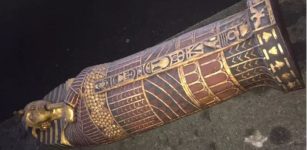 How Did An Ancient Egyptian Sarcophagus End Up Abandoned On A Street In London?
Artifacts | Mar 22, 2023
How Did An Ancient Egyptian Sarcophagus End Up Abandoned On A Street In London?
Artifacts | Mar 22, 2023 -
 Beautiful Ancient Irish Legend Of The Blessing Of The Bees – Ancient Tradition Revived In Ireland Again
Ancient Traditions And Customs | Oct 11, 2017
Beautiful Ancient Irish Legend Of The Blessing Of The Bees – Ancient Tradition Revived In Ireland Again
Ancient Traditions And Customs | Oct 11, 2017 -
 Askeladden – Little Trickster That Succeeds Where All Others Fail
Featured Stories | Mar 23, 2018
Askeladden – Little Trickster That Succeeds Where All Others Fail
Featured Stories | Mar 23, 2018 -
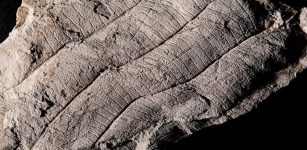 First Leaf Fossils Study Reveals An Ancient 4 Million-Year-Old Forest In Borneo
Fossils | May 3, 2022
First Leaf Fossils Study Reveals An Ancient 4 Million-Year-Old Forest In Borneo
Fossils | May 3, 2022 -
 DNA From 3,800-Year-Old Individuals Sheds New Light On Bronze Age Families
Archaeology | Aug 29, 2023
DNA From 3,800-Year-Old Individuals Sheds New Light On Bronze Age Families
Archaeology | Aug 29, 2023 -
 World’s Oldest Dala Horse Discovered In Sweden
Archaeology | Jul 18, 2020
World’s Oldest Dala Horse Discovered In Sweden
Archaeology | Jul 18, 2020 -
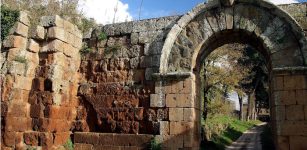 New Clues About The Fascinating Ancient Roman City Falerii Novi Revealed By Scientists
Archaeology | Sep 13, 2022
New Clues About The Fascinating Ancient Roman City Falerii Novi Revealed By Scientists
Archaeology | Sep 13, 2022 -
 Submerged Ancient Bridge Found In Genovesa Cave Reveals Humans Settled In Mediterranean Much Earlier Than Previously Thought
Archaeology | Sep 2, 2024
Submerged Ancient Bridge Found In Genovesa Cave Reveals Humans Settled In Mediterranean Much Earlier Than Previously Thought
Archaeology | Sep 2, 2024 -
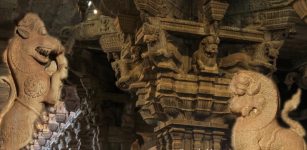 Yali – Divine Protector And Guardian Of Temples Warding Off Evil Forces In Hindu Mythology
Featured Stories | Nov 7, 2020
Yali – Divine Protector And Guardian Of Temples Warding Off Evil Forces In Hindu Mythology
Featured Stories | Nov 7, 2020 -
 Fossilized Remains Of A Gigantic Jurassic Pterosaur Unearthed In Oxfordshire, UK
Fossils | Jun 5, 2024
Fossilized Remains Of A Gigantic Jurassic Pterosaur Unearthed In Oxfordshire, UK
Fossils | Jun 5, 2024 -
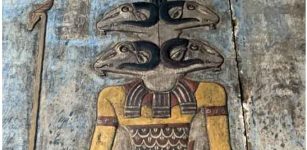 Reliefs And Engravings Of Celestial Bodies And A Zodiac On Walls And Ceilings Of Luxor’s Esna Temple
Archaeology | Oct 5, 2023
Reliefs And Engravings Of Celestial Bodies And A Zodiac On Walls And Ceilings Of Luxor’s Esna Temple
Archaeology | Oct 5, 2023 -
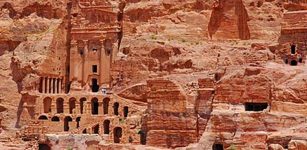 Skilled Nabataeans Celestially Aligned Petra’s Wonderful Architecture
Featured Stories | Mar 6, 2014
Skilled Nabataeans Celestially Aligned Petra’s Wonderful Architecture
Featured Stories | Mar 6, 2014 -
 Fascinating Portable Art From Torre Cave, Gipuzkoa – One Of The Most Complete Specimens From The Entire Iberian Peninsula
Archaeology | May 26, 2023
Fascinating Portable Art From Torre Cave, Gipuzkoa – One Of The Most Complete Specimens From The Entire Iberian Peninsula
Archaeology | May 26, 2023 -
 Native American Population Does Not Originate In Japan – Genetics And Skeletal Biology Questioned
Archaeology | Nov 15, 2021
Native American Population Does Not Originate In Japan – Genetics And Skeletal Biology Questioned
Archaeology | Nov 15, 2021 -
 Fatocuriosos.club Guilty Of Hundreds Of Copyright Violations Is Stealing Content Daily From AncientPages.com
News | Sep 22, 2022
Fatocuriosos.club Guilty Of Hundreds Of Copyright Violations Is Stealing Content Daily From AncientPages.com
News | Sep 22, 2022 -
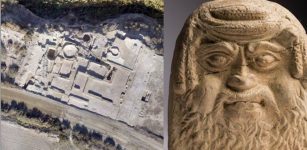 Huge Roman Forum Discovered In Unknown Ancient City In Spain
Archaeology | Sep 4, 2023
Huge Roman Forum Discovered In Unknown Ancient City In Spain
Archaeology | Sep 4, 2023 -
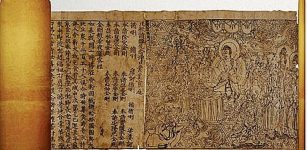 On This Day In History: ‘Diamond Sutra’ The Oldest Dated, Printed Book Is Published – On May 11, 868
News | May 11, 2016
On This Day In History: ‘Diamond Sutra’ The Oldest Dated, Printed Book Is Published – On May 11, 868
News | May 11, 2016 -
 3,000-Year-Old Bakery With Large Amounts Of Flour Discovered In Armenia
Archaeology | Jul 3, 2023
3,000-Year-Old Bakery With Large Amounts Of Flour Discovered In Armenia
Archaeology | Jul 3, 2023 -
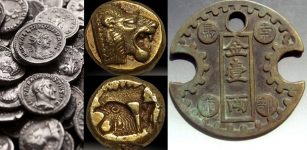 Ancient Round Coins Were Invented To Prevent Fraud
Ancient History Facts | Mar 21, 2018
Ancient Round Coins Were Invented To Prevent Fraud
Ancient History Facts | Mar 21, 2018



